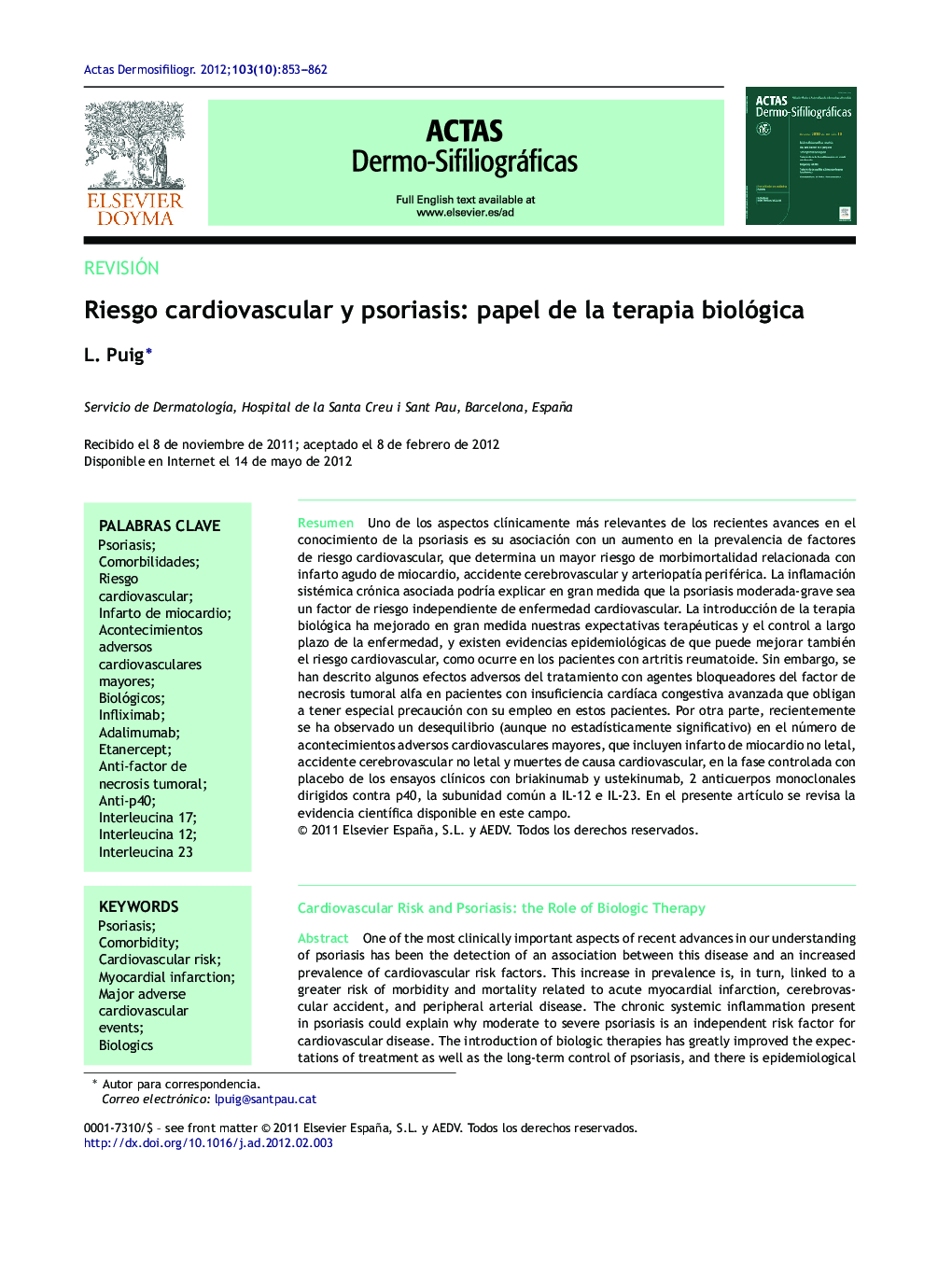| Article ID | Journal | Published Year | Pages | File Type |
|---|---|---|---|---|
| 3180402 | Actas Dermo-Sifiliográficas | 2012 | 10 Pages |
Abstract
One of the most clinically important aspects of recent advances in our understanding of psoriasis has been the detection of an association between this disease and an increased prevalence of cardiovascular risk factors. This increase in prevalence is, in turn, linked to a greater risk of morbidity and mortality related to acute myocardial infarction, cerebrovascular accident, and peripheral arterial disease. The chronic systemic inflammation present in psoriasis could explain why moderate to severe psoriasis is an independent risk factor for cardiovascular disease. The introduction of biologic therapies has greatly improved the expectations of treatment as well as the long-term control of psoriasis, and there is epidemiological evidence that these therapies may lower cardiovascular risk in psoriasis as they do in rheumatoid arthritis. Caution should, however, be exercised when prescribing biologic drugs in this setting, because adverse effects have been reported in association with the use of tumor necrosis factor inhibitors in patients with advanced congestive heart failure. Furthermore, a numerical imbalance (without statistical significance) between the groups receiving the biologic drug and the placebo groups was recently observed in the incidence of major cardiovascular events (nonfatal myocardial infarction and cerebrovascular accident and cardiovascular death) during the controlled periods of clinical trials of briakinumab and ustekinumab, 2 monoclonal antibodies that target the p40 subunit shared by IL 12 and IL-23. We review the current scientific evidence on this topic.
Keywords
Anti-factor de necrosis tumoralComorbilidadesAdalimumabMyocardial infarctionetanerceptInfarto de miocardiointerleukin 12interleukin 17interleukin 23InfliximabBiologicsBiológicosmajor adverse cardiovascular eventsRiesgo cardiovascularCardiovascular riskTumor Necrosis Factor InhibitorsComorbidityPsoriasis
Related Topics
Health Sciences
Medicine and Dentistry
Dermatology
Authors
L. Puig,
